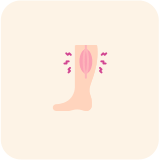Summary
Growth Hormone Deficiency (GHD) is a rare but treatable condition that affects a child’s growth. Growth hormone (GH) plays an important role not just in height but also in bone strength, body composition, metabolism, and overall well-being.
Children with GHD may have a slow growth rate and be shorter than their peers. The condition can occur on its own (isolated GHD) or along with other hormone deficiencies (combined pituitary hormone deficiency, CPHD). It can be present from birth (congenital) or develop later (acquired).
With early diagnosis and treatment, most children can reach a normal adult height and enjoy a healthy life.
Diagnosis and When to Seek Help
You should talk to a doctor if your child:
- Grows much slower than other children of the same age
- Is significantly shorter than their peers
- Has low energy levels or low blood sugar
- Shows delayed puberty
A diagnosis is made based on a child’s growth pattern, medical tests, and brain scans. Doctors look at hormone levels, medical history, and imaging of the pituitary gland (which produces GH) to confirm GHD.
Management
The main treatment for GHD is daily injections of recombinant human growth hormone (rhGH). This therapy is safe and highly effective in helping children grow to their expected height.
If other hormone deficiencies are present, additional hormone treatments may be needed. Managing GHD often requires a team of specialists, including endocrinologists, to monitor growth and overall health.
Follow-Up and Monitoring
Children receiving GH treatment need regular check-ups to track their growth and adjust the dosage if needed. Once growth and puberty are complete, doctors will reassess whether GH therapy should continue into adulthood. Some individuals may need ongoing treatment due to GH’s other benefits on bone strength, metabolism, and overall health.
Early diagnosis and treatment can make a big difference, helping children with GHD grow and thrive. If you have concerns about your child’s growth, consult a pediatric endocrinologist.
History and Exam
Key diagnostic factor
- presence of risk factors
- short stature
- poor growth velocity
- short for target height
Other diagnostic factors
- assisted birth
- visual impairment
- associated dysmorphic features
- focal neurological deficits
Risk factors
- family history of GHD
- other pituitary hormone deficiencies
- central nervous system (CNS) tumours/cysts
- radiotherapy
Diagnostic Investigations
1st investigations to order
- x-ray wrist
- thyroid function tests
- IGF1 and IGFBP3
- baseline pituitary function tests
Investigations to consider
- GH provocation test
- MRI brain
- CT brain/x-ray skull
- full pituitary hormone evaluation


